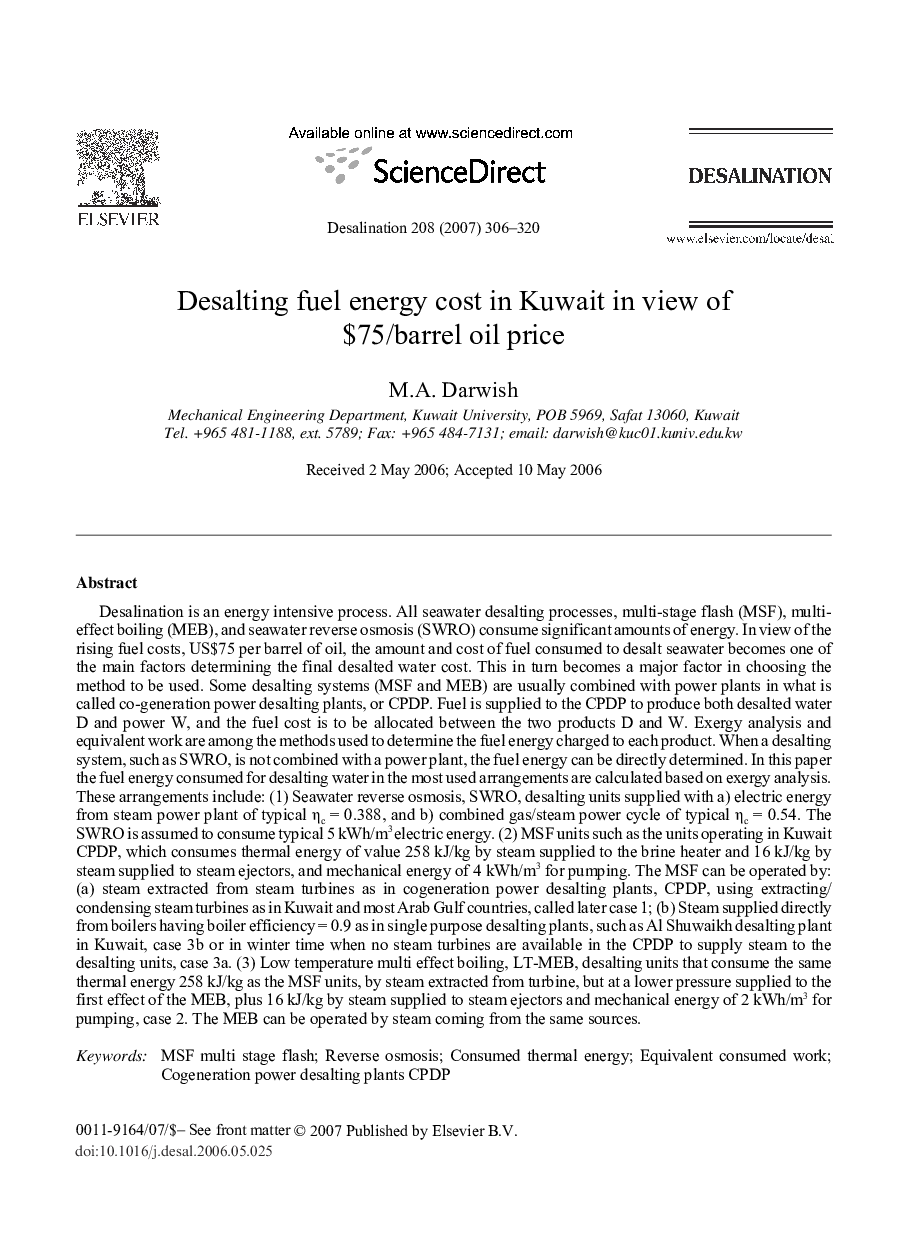| کد مقاله | کد نشریه | سال انتشار | مقاله انگلیسی | نسخه تمام متن |
|---|---|---|---|---|
| 628394 | 1455482 | 2007 | 15 صفحه PDF | دانلود رایگان |

Desalination is an energy intensive process. All seawater desalting processes, multi-stage flash (MSF), multieffect boiling (MEB), and seawater reverse osmosis (SWRO) consume significant amounts of energy. In view of the rising fuel costs, US$75 per barrel of oil, the amount and cost of fuel consumed to desalt seawater becomes one of the main factors determining the final desalted water cost. This in turn becomes a major factor in choosing the method to be used. Some desalting systems (MSF and MEB) are usually combined with power plants in what is called co-generation power desalting plants, or CPDP. Fuel is supplied to the CPDP to produce both desalted water D and power W, and the fuel cost is to be allocated between the two products D and W. Exergy analysis and equivalent work are among the methods used to determine the fuel energy charged to each product. When a desalting system, such as SWRO, is not combined with a power plant, the fuel energy can be directly determined. In this paper the fuel energy consumed for desalting water in the most used arrangements are calculated based on exergy analysis. These arrangements include: (1) Seawater reverse osmosis, SWRO, desalting units supplied with a) electric energy from steam power plant of typical ηc = 0.388, and b) combined gas/steam power cycle of typical ηc = 0.54. The SWRO is assumed to consume typical 5 kWh/m3 electric energy. (2) MSF units such as the units operating in Kuwait CPDP, which consumes thermal energy of value 258 kJ/kg by steam supplied to the brine heater and 16 kJ/kg by steam supplied to steam ejectors, and mechanical energy of 4 kWh/m3 for pumping. The MSF can be operated by: (a) steam extracted from steam turbines as in cogeneration power desalting plants, CPDP, using extracting/condensing steam turbines as in Kuwait and most Arab Gulf countries, called later case 1; (b) Steam supplied directly from boilers having boiler efficiency = 0.9 as in single purpose desalting plants, such as Al Shuwaikh desalting plant in Kuwait, case 3b or in winter time when no steam turbines are available in the CPDP to supply steam to the desalting units, case 3a. (3) Low temperature multi effect boiling, LT-MEB, desalting units that consume the same thermal energy 258 kJ/kg as the MSF units, by steam extracted from turbine, but at a lower pressure supplied to the first effect of the MEB, plus 16 kJ/kg by steam supplied to steam ejectors and mechanical energy of 2 kWh/m3 for pumping, case 2. The MEB can be operated by steam coming from the same sources.
Journal: Desalination - Volume 208, Issues 1–3, 5 April 2007, Pages 306-320